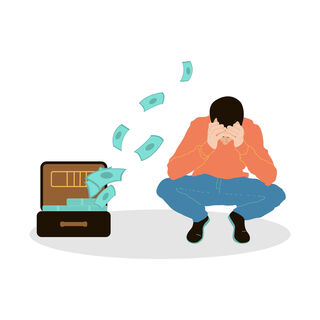Anxiety
'Havana Syndrome' Sufferers Deserve Compensation
But not for the reason you think.
Posted June 28, 2022 Reviewed by Tyler Woods
Key points
- The U.S. government is about to compensate victims of ‘Havana Syndrome’ despite a lack of evidence that it even exists.
- There is no credible evidence that any Americans were attacked by a hostile foreign actor.
- The decision to compensate ‘Havana Syndrome’ patients may be justified on moral grounds as victims of ineptitude.
‘Havana Syndrome’ is the name given to an array of mysterious health ailments that have been reported by American diplomats and intelligence officers who were stationed in Cuba beginning in late 2016.

The conclusions of three different U.S. government investigations into the origins of the condition have not changed. There is still no evidence to suggest the presence of a foreign power or use of a secret weapon to make people sick. So why is the Biden administration about to compensate victims of ‘Havana Syndrome’ up to $200,000 each (Hudson & Harris; Atwood et al., 2022)? More recent ‘attacks,’ believed by some to be from a mysterious sonic or microwave weapon, have been reported by American diplomats and military personnel around the world after the government issued alerts to be on the lookout for the tell-tale signs and symptoms.
The pool of money will come from The Havana Act which was approved by Congress last year and signed into law by President Biden in October of 2021. Under the law, the CIA Director and Secretary of State have been given the authority to determine who would be eligible to receive funds (Strobel, 2022).
Cuban Victims Deserving of Compensation
There are more mundane explanations for the symptoms reported by the ‘Havana Syndrome’ victims in Cuba. The first involves psychogenic illness in diplomats after they had been told they may be the target of a sonic weapon. The second is the redefining of a variety of mundane aches and pains that were reframed under a new label (Baloh and Bartholomew, 2020). There is no evidence that any of those affected were the victims of an attack by a weapon or exposure to an anomalous energy source. However, a case can be made that the affected diplomats in Havana deserve to be compensated for the pain and suffering they have endured after being told they may be the targets of a secret weapon—a claim that was almost certainly false but generated considerable anxiety.
History Repeats
This would not be the first time that a government has authorized the payment of compensation for a condition that has not been proven to exist. The epidemic of occupational over-use injuries among Australian keyboard operators during the 1980s is a classic example. Curiously, reports of these "repetition strain injuries"—dubbed RSI for short, were almost non-existent in other countries which also had keyboard operators. There is now considerable evidence that those affected were experiencing an array of mundane symptoms that were redefined by the Australian medical community and the victims to a new cause. Others were suffering from anxiety. Complicating matters was the lure of potential compensation payouts (Bartholomew and Sirois 1999).
During the mid-19th century, some British railway passengers sought financial compensation for ‘railway spine.’ During this period train mishaps were common. Many accident victims walked away unscathed only to report later experiencing an array of symptoms, ranging from headaches to assorted aches and pains. There was no objective evidence that their complaints were due to a spinal injury caused by collisions during rail travel—known at the time as ‘spinal compression.’ Initially thought to have been inflammation of the spinal cord, a consensus later emerged that it was psychological in origin resulting from the trauma of the event. Like ‘Havana Syndrome,’ symptoms were vague and the list lengthy (Evans and Bartholomew 2009). One issue with diagnosing ‘Havana Syndrome’ is the laundry list of ambiguous symptoms, which include headache, nausea, fatigue, disorientation, trouble balancing, forgetfulness, confusion, tinnitus, head pressure, ear pain, nose bleeds, and depression.
One of the defining features of the condition is the presence of mysterious background sounds that coincide with the health complaints. However, eight of the first 21 victims from the American Embassy were able to record the mysterious sounds that had accompanied their ‘attacks.’ A now declassified U.S. Government report compiled by a group of specialist scientists, including some of the country’s top audiologists, analyzed the recordings and concluded that they were the mating calls of crickets (Acoustic Signals, 2018). It is also important to remember that, despite public claims to the contrary, no studies have ever demonstrated that any of the Havana victims experienced brain damage or hearing loss (Baloh and Bartholomew, 2020).
The victims of ‘Havana Syndrome’ are experiencing real symptoms. There is no evidence that they are faking or mentally disturbed. It is not uncommon in the annals of psychology for people to redefine ambiguous symptoms under a new label or exhibit health complaints that are generated by anxiety.
Bracing for the Deluge of New Reports
With money in the air, the offer of compensation for any victims outside of Cuba is likely to bring on a tsunami of claims by the nearly 3 million military personnel, in addition to diplomats and intelligence officers stationed around the world. Should they be compensated also? Are they not victims? This is a problem that has been created by the U.S. government. It will only be solved when officials put politics aside and listen to the conclusions of its own intelligence agencies—and that includes releasing the Freedom of Information documents which remain sealed.
References
Acoustic Signals and Physiological Effects 14 on U.S. Diplomats in Cuba, November 2018. Declassified U.S. Government study.
Atwood, Kylie, Lillis, Katie, and Hansler, Jennifer (2022). “Biden administration preparing to compensate some 'Havana syndrome' victims up to $200,000.” CNN International, June 24.
Baloh, Robert W., and Bartholomew, Robert E. (2020). Havana Syndrome. Cham, Switzerland: Copernicus Books.
Bartholomew, Robert E., and Sirois, Francois (2000). “Occupational Mass Psychogenic Illness: A Transcultural Perspective.” Transcultural Psychiatry 37(4):495-524
Caplan, Eric Michael (1995). Trains, Brains, and Sprains: Railway Spine and the Origins of Psychoneuroses. The Bulletin of the History of Medicine 69, 3:387-419.
Evans, Hilary, and Bartholomew, Robert E. (2009). Outbreak! The Encyclopedia of Extraordinary Social Behavior. New York: Anomalist Books.
Hudson, John, Harris, Shane (2022). “U.S. to give some ‘Havana syndrome’ victims six-figure compensation.” The Washington Post, June 23.
Strobel, Warren (2022). “Some Havana Syndrome Victims to Draw Six-Figure U.S. Payments; A 2021 law authorizes compensation for diplomats and spies afflicted with mysterious ailment.” The Wall Street Journal, June 24.


